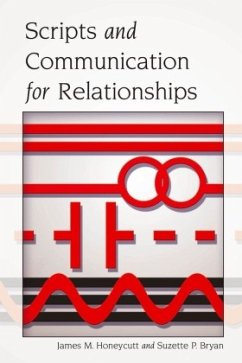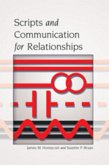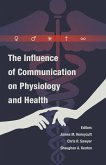Over 200 years ago, Jane Austen, an astute observer of the rituals of late-eighteenth-century courtship wrote that a happy marriage was the result of chance. Modern relationship researchers have revealed that scripts concerning pair bonding rituals are actually constituted in a manner so as to leave little to chance when romantic attachments are formed, intensify, and sometimes dissolve.
In this introductory text, the authors discuss the basis of relationship scripts, emotions, imagery, and physiology of relationships including romance, friendship, work associates, mentors, and Facebook friends. They argue that people's expectations for relational development influence their communication, faith, and commitment in relationships. Misconstruing sexual or flirtatious intent, for example, is derived from having different scripts about attraction. The book also discusses abusive relationships including characteristics of abusers, stalking, and verbal and physical aggression.
Designed for classes in communication and relationships, interpersonal communication, intrapersonal communication, and communication and cognition, as well as across disciplines in psychology, sociology, family studies, and social work, this text provides a comprehensive overview of how scripts and communication are used in relationships. Guidelines based on developing and improving verbal and nonverbal communication competence are provided. A downloadable teacher's guide is available on request.
In this introductory text, the authors discuss the basis of relationship scripts, emotions, imagery, and physiology of relationships including romance, friendship, work associates, mentors, and Facebook friends. They argue that people's expectations for relational development influence their communication, faith, and commitment in relationships. Misconstruing sexual or flirtatious intent, for example, is derived from having different scripts about attraction. The book also discusses abusive relationships including characteristics of abusers, stalking, and verbal and physical aggression.
Designed for classes in communication and relationships, interpersonal communication, intrapersonal communication, and communication and cognition, as well as across disciplines in psychology, sociology, family studies, and social work, this text provides a comprehensive overview of how scripts and communication are used in relationships. Guidelines based on developing and improving verbal and nonverbal communication competence are provided. A downloadable teacher's guide is available on request.








